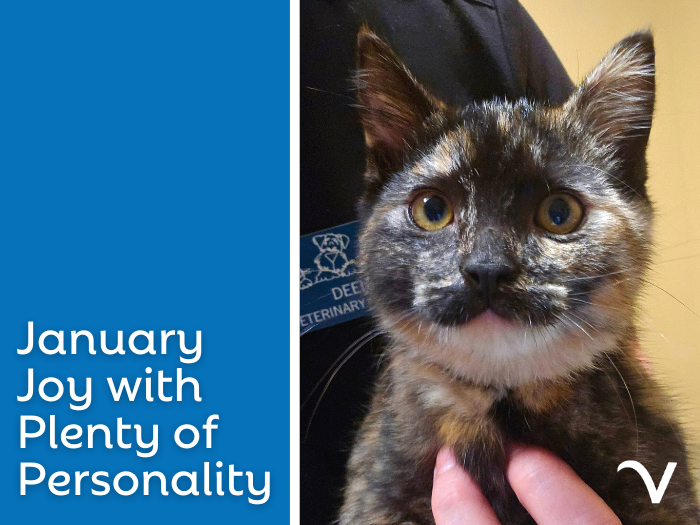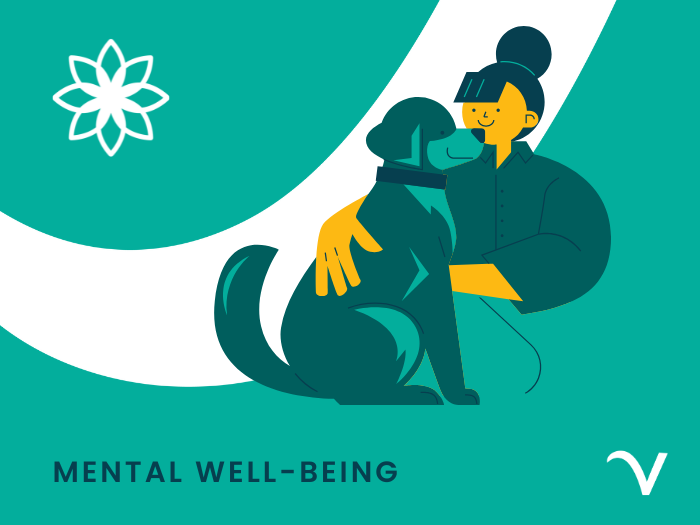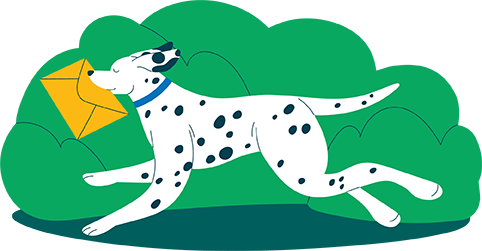World Wildlife Day: Celebrating Wildlife Care at Our Practices
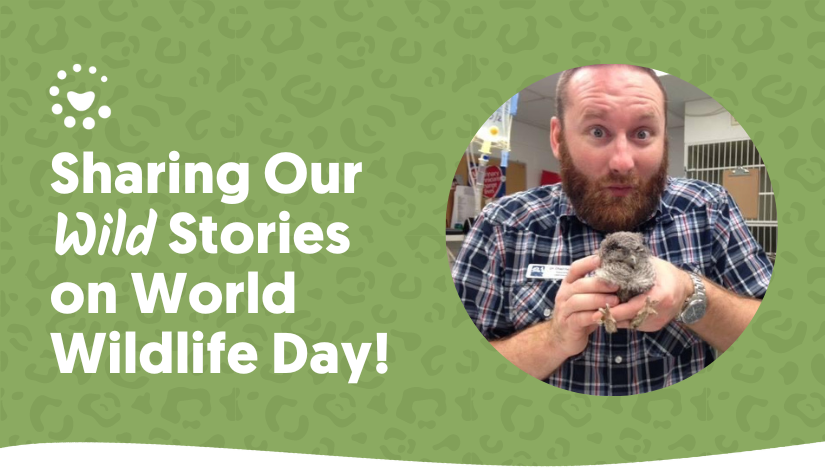
March 3, 2023
March 3 celebrates World Wildlife Day and we can’t think of a better way to celebrate than recognizing the teams in our network that provide veterinary care for their local wildlife populations.
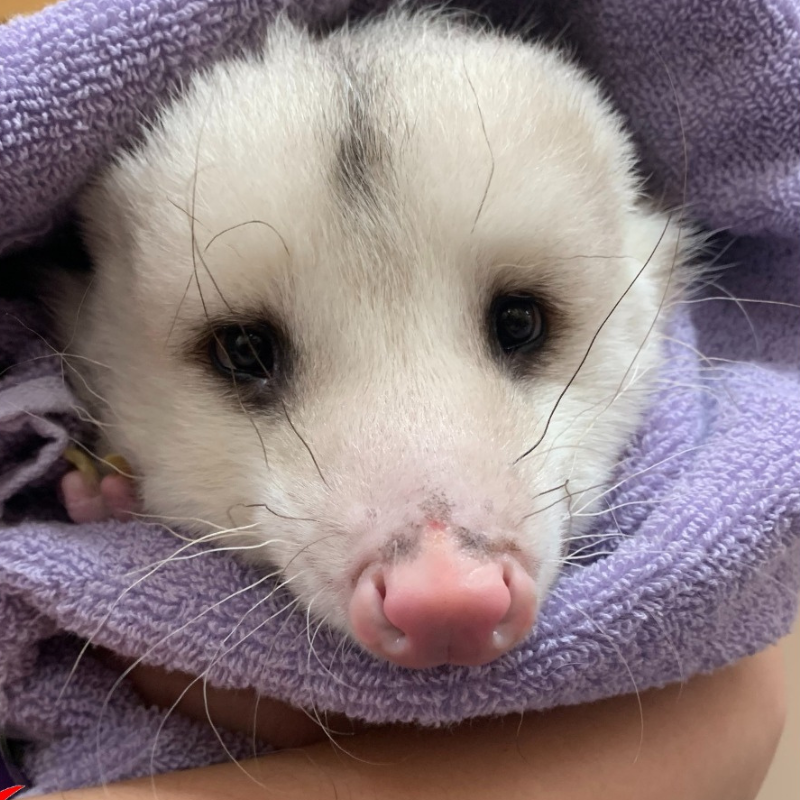
Serving their area’s wildlife, Milwood Animal Clinic sees many animals that require extra care or transfers to a rehabilitator. Recently, the practice has seen raptors that hospital manager, Barb Disney, says: “... are unreleasable as a result of permanent injury and are going to zoos or to educational facilities and in need of a veterinarian to attest to their condition.” The hospital recently saw a sweet and paw-some opossum named Sammy who was grateful for the team’s care.
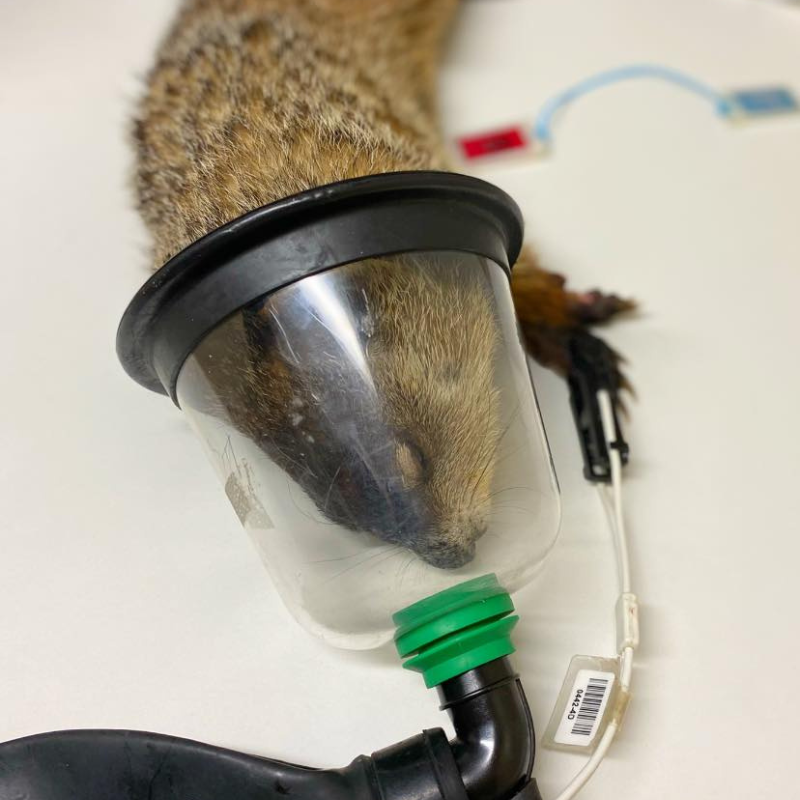 Littleton Animal Hospital officially opened their wildlife program in 2019. Their staff volunteers their time and their veterinarians work directly with local rehabbers. They have helped over 300 wildlife patients, including a special case with Newhouse Wildlife Rescue to help Ms. Munchie. The team noticed the familiar groundhog (named from all the munching she did in their backyard) was dragging one of her back legs. The Newhouse team brought Munchie to Littleton Animal Hospital where the veterinary team revealed that she was suffering from some nerve damage. Now, Ms. Munchie gets to munch on all the snacks and treats while she recovers.
Littleton Animal Hospital officially opened their wildlife program in 2019. Their staff volunteers their time and their veterinarians work directly with local rehabbers. They have helped over 300 wildlife patients, including a special case with Newhouse Wildlife Rescue to help Ms. Munchie. The team noticed the familiar groundhog (named from all the munching she did in their backyard) was dragging one of her back legs. The Newhouse team brought Munchie to Littleton Animal Hospital where the veterinary team revealed that she was suffering from some nerve damage. Now, Ms. Munchie gets to munch on all the snacks and treats while she recovers.

The team at Countryside Animal Hospital is always willing to lend a helping hand when a wildlife animal is in need. The CSS at the practice is even a licensed rehabber! She took an injured fawn to a vet who then amputated one of her legs. The original recommendation was to euthanize, but the fawn was able to go to a farm with a USDA licensed rehabber and survived with 3 legs. This is what inspired the CSS to become a licensed rehabber. The team treats a variety of wildlife, including the adorable opossum pictured. Hospital Manager, Sally Schaefer says, “We are all passionate about wildlife, and have cared for many critters over the years.”
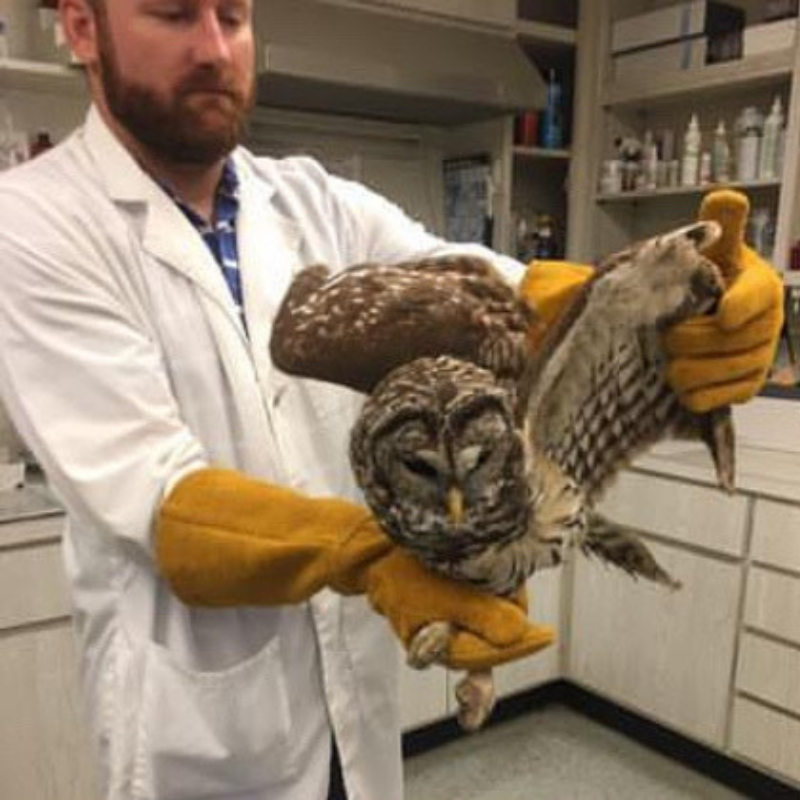 Working with wildlife has always been important to Dr. Harris, beginning with his work at a private zoo in Odessa, Texas where he helped wildlife that were incapable of being released into their natural habitats. This experience played a major role in his decision to become a veterinarian. In vet school, he spent time at The Raptor Center on the University of Minnesota Campus, the largest raptor-bird-specific hospital in the world. He was able to work with birds ranging from bald eagles to snowy owls to condors. Dr. Harris also volunteered at the Wildlife Rehabilitation Center of Minnesota in St. Paul, a large wildlife-specific veterinary hospital and rehabilitation facility. Upon graduation, he worked with wildlife rehabilitators for numerous species, including bats, raptor birds, reptiles, opossums, and more.
Working with wildlife has always been important to Dr. Harris, beginning with his work at a private zoo in Odessa, Texas where he helped wildlife that were incapable of being released into their natural habitats. This experience played a major role in his decision to become a veterinarian. In vet school, he spent time at The Raptor Center on the University of Minnesota Campus, the largest raptor-bird-specific hospital in the world. He was able to work with birds ranging from bald eagles to snowy owls to condors. Dr. Harris also volunteered at the Wildlife Rehabilitation Center of Minnesota in St. Paul, a large wildlife-specific veterinary hospital and rehabilitation facility. Upon graduation, he worked with wildlife rehabilitators for numerous species, including bats, raptor birds, reptiles, opossums, and more.
Dr. Harris says, “I feel treating wildlife is the best way that I can give back to the environment. So many species have been decimated by the actions of humans and I consider myself someone that can make a difference. Conservation is very important to assure these animals are around for generations.”
We are grateful to have so many dedicated teams in our network who go out of their way to care for their local wildlife. Follow us on Facebook to see the many ways our teams contribute to their communities.
Read how members of our veterinary network provided a spay and neuter clinic to strays >

